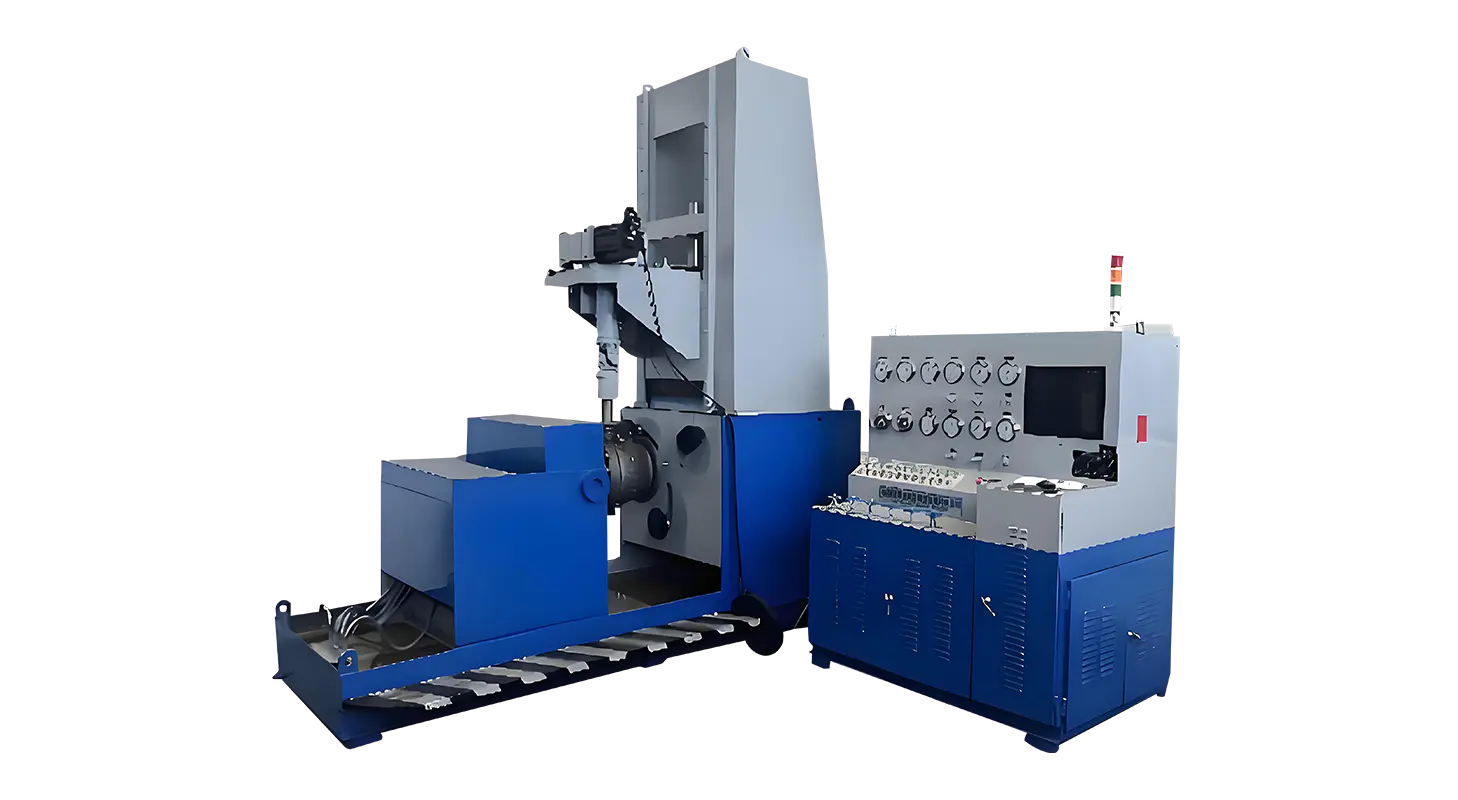Jun 25, 2025
Electric valve test benches play an important role in modern industrial systems. These testing platforms are designed to evaluate the performance, safety, and functionality of various types of valves under controlled conditions. As industries continue to focus on safety, efficiency, and reliability, the use of electric valve test benches becomes increasingly valuable. This article will explore the key applications of electric valve test benches in different industrial settings, including their roles in valve hydrostatic test benches and valve tightness test machines.

Electric Valve Test Benches: Core Functions
An electric valve test bench is a testing platform powered by electric drive systems. It is used to conduct a range of valve tests, including pressure, sealing, and functional evaluations. The electric drive allows for precise control of clamping forces, rotational speeds, and pressure settings, which helps ensure consistent testing procedures.
Electric valve test benches are widely used across industries such as oil and gas, chemical processing, water treatment, power generation, and manufacturing. These benches can handle various valve types, including butterfly valves, ball valves, gate valves, and safety valves.
Valve Hydrostatic Test Bench Integration
One of the primary applications of electric valve test benches is in valve hydrostatic test bench systems. Hydrostatic testing is a critical procedure where valves are exposed to pressurized water to verify their structural integrity and pressure resistance. The electric valve test bench can control the pressure increase gradually and maintain it accurately during the hydrostatic test process.
The combination of an electric valve test bench and a valve hydrostatic test bench provides a stable and efficient testing environment. This setup is commonly used to assess valves that will operate in high-pressure pipelines or critical fluid systems. By applying hydrostatic pressure, operators can identify any material defects, weld failures, or potential weak points in the valve structure.
In many industrial workshops, electric valve test benches are connected to hydrostatic systems to ensure that the entire valve assembly can handle the required working pressure safely. This method helps prevent accidents and improves system reliability by verifying valve performance before installation.
Valve Tightness Test Machine Application
Another important application of electric valve test benches is in valve tightness test machines. Valve tightness testing focuses on evaluating the sealing capability of the valve when it is fully closed. This type of testing is essential to prevent fluid or gas leakage, which can advance to safety risks and operational inefficiencies.
Electric valve test benches used in tightness testing allow operators to control the closing force precisely and maintain stable pressure on both sides of the valve seat. The valve tightness test machine connected to the electric bench can measure any leakage rates with high sensitivity.
Industries dealing with hazardous materials, compressed gases, or chemical solutions often rely on tightness testing to ensure that valves meet specific safety requirements. Electric valve test benches can support multiple tightness test standards and procedures, making them suitable for a variety of applications.
The accurate pressure control provided by electric systems allows for consistent and repeatable valve tightness tests, reducing the chances of operator-induced errors.
Advantages of Electric Valve Test Benches in Industrial Use
Electric valve test benches offer several advantages that support industrial valve testing needs. These benches typically feature adjustable fixtures to accommodate different valve sizes and types. The electric drive system enables smooth operation and controlled movements during testing procedures.
In addition to hydrostatic and tightness tests, electric valve test benches can also support functional tests such as opening and closing torque measurements, seat leakage evaluations, and actuator performance verification.
Their flexibility makes electric valve test benches useful in various production and maintenance environments. Valve manufacturers, maintenance service providers, and industrial plant operators can benefit from integrating electric valve test benches into their quality assurance and routine inspection workflows.
Electric valve test benches provide essential support for industrial valve testing processes. Their applications in valve hydrostatic test bench systems and valve tightness test machines help industries ensure valve reliability, sealing performance, and pressure resistance. By delivering precise control and repeatable testing conditions, electric valve test benches contribute to safer and more stable fluid systems across many industrial sectors. As the demand for reliable valve testing continues to grow, the role of electric valve test benches will remain significant in meeting quality and safety standards.